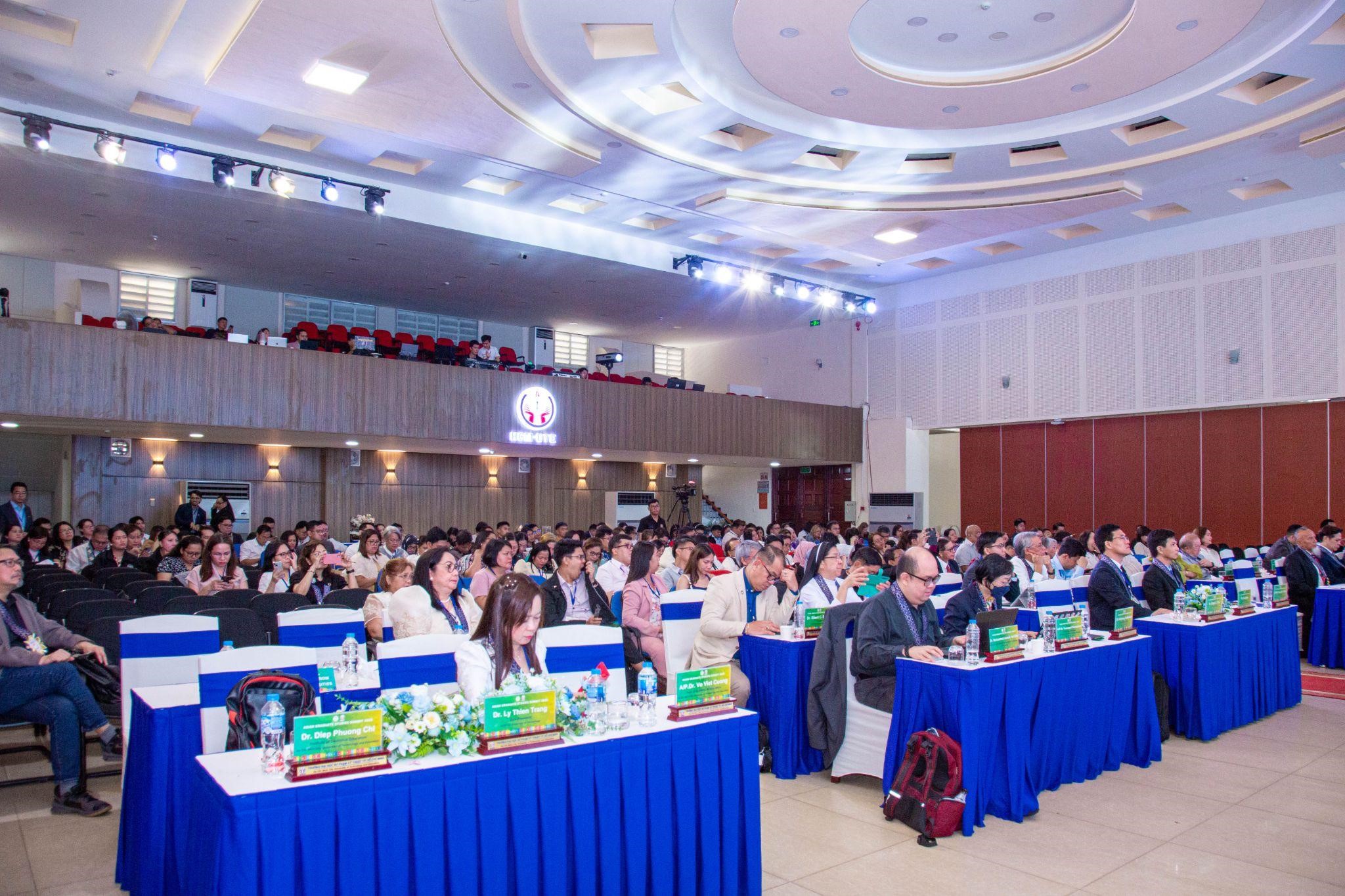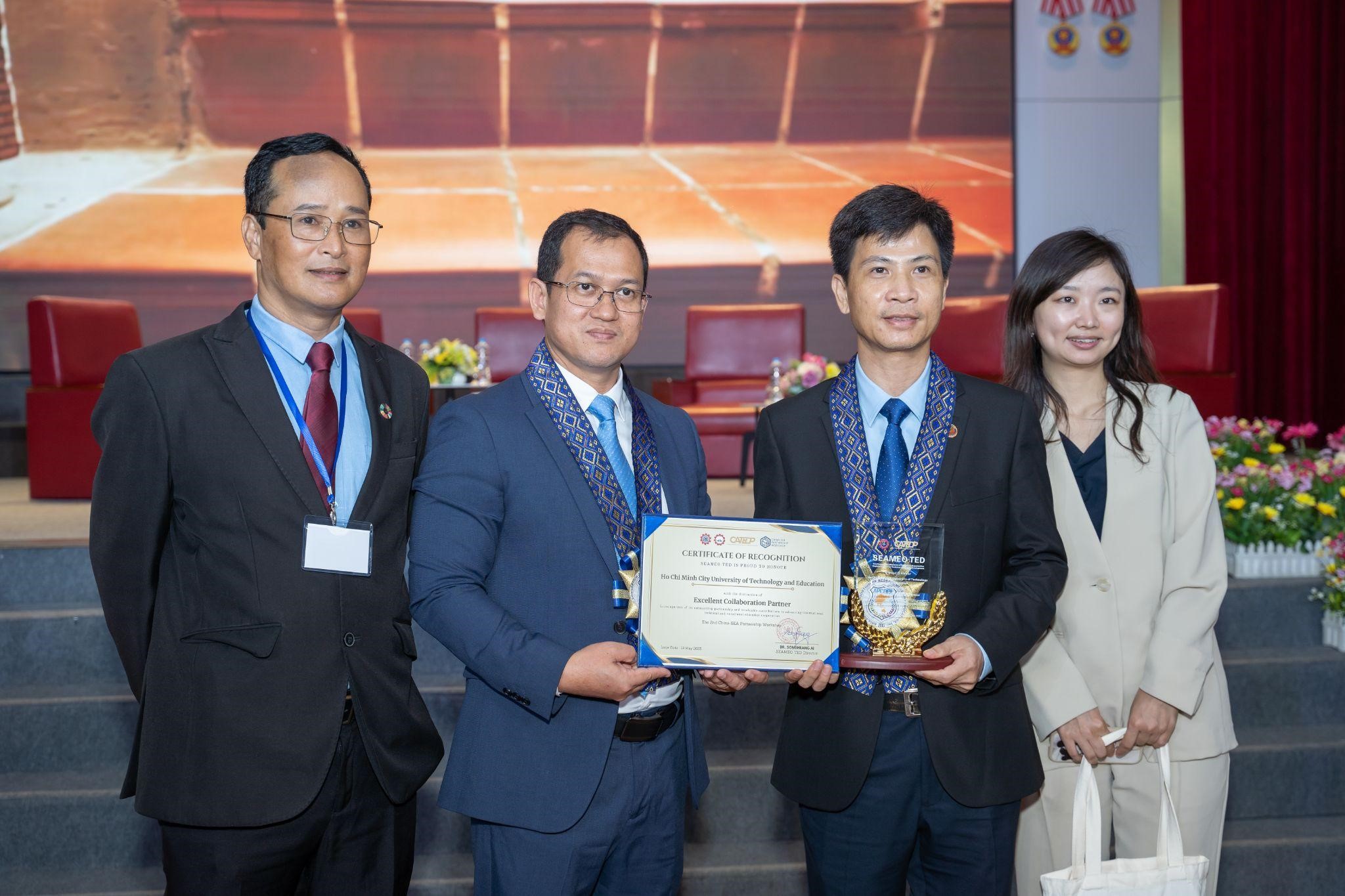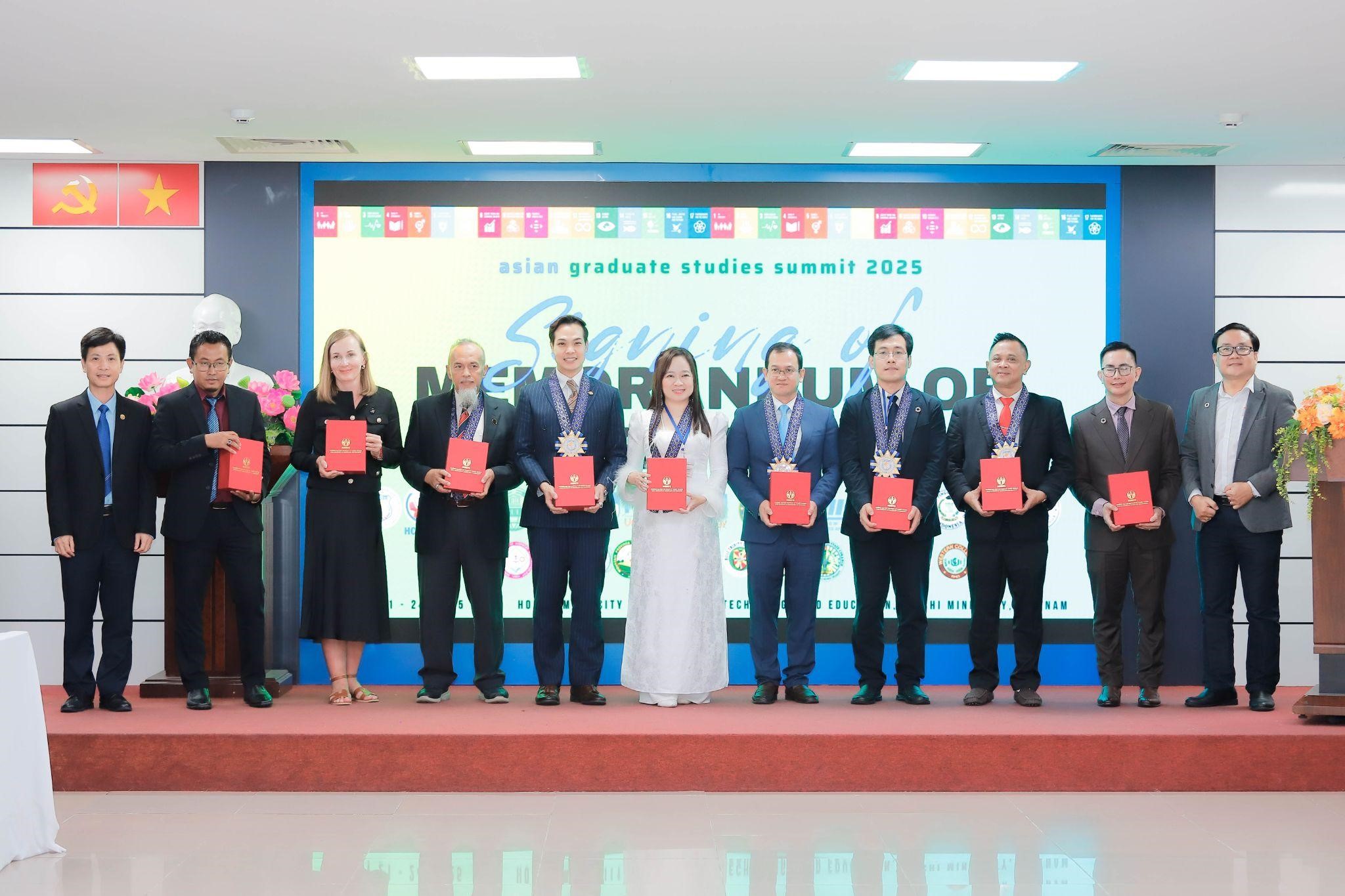On the morning of May 21, 2025, Ho Chi Minh City University of Technology and Education (HCMUTE), in collaboration with the Asia-Pacific Consortium for Researchers and Educators (APCORE), held the opening ceremony of the Asian Graduate Studies Summit (A-GRASS 2025) under the theme “Bridging Knowledge to Action: Transformative Graduate Education and Research for a Sustainable Asia.”
The conference spans three days, from May 21 to May 23, 2025. It serves as a multidisciplinary forum for researchers, lecturers, doctoral candidates, policymakers, and professionals in the region to share knowledge, experience, and best practices in postgraduate education and innovative research.

Through in-depth discussion sessions, research presentations, and networking activities, A-GRASS 2025 aims to foster interdisciplinary and international collaboration, making concrete contributions to the sustainable development goals of the Asia region.
At the opening, partner universities of HCMUTE included Bicol University, Burapha University, Holy Trinity University, Lyceum of the Philippines University – Manila, Mountain Province State University, Philippine Normal University, Politeknik Piksi Ganesha, Quezon City University, Universidad de Manila, and University of Perpetual Help System DALTA.
The keynote speakers included Prof. Qi XinJian, Deputy Director of the International Research & Training Center for Rural Education under UNESCO (Beijing, China), and Dr. Trần Nam Tú, Deputy Director of the Department of Science, Technology and Environment under Vietnam’s Ministry of Education and Training (participating online).
Also present was the advisory council of APCORE, including Prof. Ir. Mohd Jailani Bin Mohd Nor (Chair), Prof. Racidon P. Bernate (Chief Executive), and Assoc. Prof. Witawat Jangiam (Executive Director).
The event brought together more than 500 researchers, scholars, policymakers, and experts—both in person and online—from various countries such as Vietnam, the Philippines, Cambodia, Malaysia, China, Thailand, India, Russia, South Korea, Pakistan, Ethiopia, and Nigeria.
From HCMUTE, Assoc. Prof. Dr. Châu Đình Thành, Vice Rector, attended together with representatives of faculties and administrative units.
In his opening remarks, Prof. Racidon Bernarte, CEO of APCORE, emphasized that A-GRASS 2025 is not only an academic conference but also an expression of a shared belief—that postgraduate education has the potential to shape the future. Facing complex challenges such as climate change, the research community must not remain passive. “We must promote interdisciplinary approaches, transform knowledge into concrete action, for social stability and sustainable development.”
Speaking next, Assoc. Prof. Châu Đình Thành highlighted the essential role of postgraduate education in driving sustainable development across the region. In a globally changing environment, the linkage between knowledge and action is not only a trend but also a responsibility for the academic community. HCMUTE pledges to walk alongside partners in the region to expand collaboration, share resources, and forge practical, impactful initiatives to help tackle shared development challenges in Asia.
Assoc. Prof. Witawat Jangiam, President of A-GRASS 2025, Director of Graduate Studies at Burapha University, and member of the “Committee to Promote University Education toward International Quality and Standards” under Thailand’s Ministry of Higher Education, Science, Research and Innovation, remarked that A-GRASS 2025 is where innovation meets tradition, where history and future intersect, and where theory and practice converge.
He stated his belief that from this summit, small ideas will be nurtured into major initiatives, academic relationships into sustainable networks, and—most importantly—we will act together—not only for each country’s development but for a sustainably developing Asia.
Dr. Trần Nam Tú delivered an online presentation titled “Bridging Knowledge to Action: Transformative Graduate Education and Research for a Sustainable Asia.” He emphasized Asia’s increasing role on the international stage through the enhancement of research capacity and innovation across regional countries. He also affirmed that connecting knowledge with action is not only an effective research approach but also the key to realizing sustainable development goals. He provided practical examples in Vietnam of applying research outcomes in education, green technology development, university–industry partnerships, sustainable-oriented training programs, and transformative research in the context of digital transformation and climate adaptation.

Within the program, the first discussion session was titled “Pedagogical Innovations and Sustainable Research in Graduate Education: Perils, Pitfalls, and Pearls,” featuring speakers such as Dr. Rosales, Dr. Morales, Dr. Vaddahana, Dr. Cue, Dr. Diệp Phương Chi, and Dr. Tucpi. They shared lively and deep experiences and challenges in implementing pedagogical innovation.
This discussion marked the beginning of a series of intensive activities at A-GRASS 2025, promising to continue as an important bridge for scholars to explore creative solutions, promote collaboration, and act for a transformative postgraduate education that contributes to a more sustainable Asia.
On the same afternoon, in Meeting Room II, a Memorandum of Understanding (MOU) was signed among 30 higher education institutions from the Philippines, Indonesia, Vietnam, China, Russia, Thailand, Malaysia, and Cambodia.

This MOU reflects a shared commitment to promoting inter-institutional collaboration through activities such as: joint research and publishing, facilitating collaborative projects and co-authorships, knowledge-sharing initiatives to address regional and global challenges; academic exchange programs, promoting faculty and student mobility to strengthen interdisciplinary learning and cultural understanding; capacity-building initiatives, organizing workshops, seminars, and training programs to enhance research and leadership skills; cooperation in organizing conferences, symposiums, and postgraduate research forums like A-GRASS; sharing resources, exchanging research materials, learning resources, and digital tools to support academic development and innovation.
—
Reported by: Thanh Nhi
Photos: Thái Bảo, Minh Anh, Huỳnh Tú, Đình Thụy